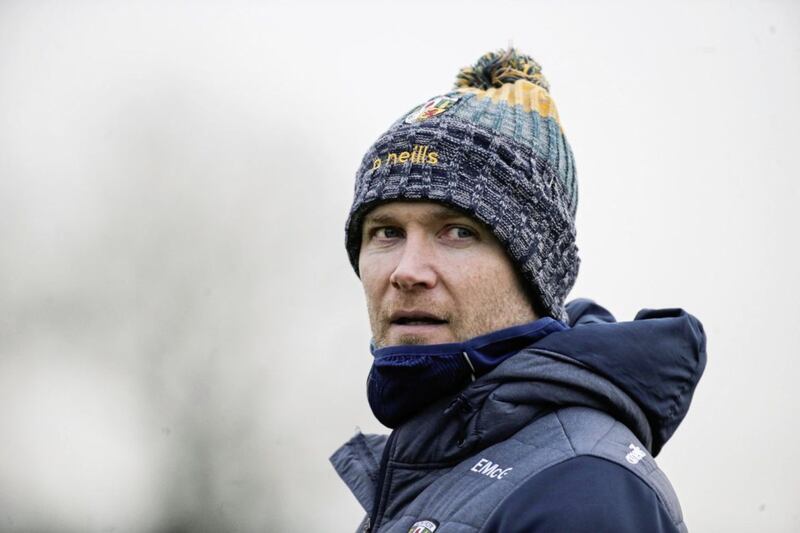A FRIEND and former county player went for a job interview, his first interview in the private world – some say ‘the real world’.
Since he qualified as a technician more than 20 years ago he has been employed in variations of the same role, just at different pay grades, all within the six counties.
Each interview had a familiar ring to it, act professional, prepare well, listen to the questions, and for flip sake, don’t mention the GAA.
In other words, portray yourself as one who is knowledgeable and driven but do not divulge too much about yourself.
This example has a familiar ring to it and we can all cite similar instances.
I’ve participated in many interviews from both sides of the table. With the exception of my first interview as a naive 22-year-old, I’ve never uttered those three letters to a panel, nor have they been spoken to me by an interviewee.
This seems remarkable given the huge role GAA plays in people’s lives and the qualities gained from volunteerism and participation in team games which can enhance every workplace.
It strikes me this is a cultural issue perhaps more prevalent in the north than anywhere in the UK.
Now, I do not know if people involved in rugby or soccer are equally reticent to boast about their involvement but my intuition is that GAA folk do not reference their participation in Gaelic games at the risk of offending people of different persuasions.
My friend generally passed this off as modesty until he applied for a sales job in the Republic of Ireland and was asked what was initially a fairly typical question: ‘Why do you think the customer is likely to give you time over another company’s rep?’
It seems the typically professional answer was provided – a spiel which references customer satisfaction and the product’s USPs, etc.
In his opinion, question answered, now the next question.
Unfortunately the next question was one for which he had not prepared.
‘You are a famous personality in GAA circles, you have not told us about this or how it would open doors for you, why not?’
The guy was flummoxed and speechless.
In all his years he has concealed this nugget of information as if it risked him being overlooked for a post he was deserving of, or at least that was his perception.
Is it that private businesses are interested in aspects of an interviewee’s profile which sets them apart from others and are open to the benefits of participation in sports of all types or is it the case that folk in the south simply have a different mindset to those living north of the border?
As it transpired, the non-disclosure was seen as a negative as the interviewee neglected to put forward perhaps the most important weapon in his armoury.
Immediately seeds of doubt were sown that a similar error of judgement would occur in a crucial sales meeting.
It has been 20 years since the Good Friday Agreement was signed, a stable peace process commenced and internal border controls on this island abolished.
Why is it people in the north remain apologetic or guarded about their involvement in Gaelic games?
The public sector is a huge employer of young people in Northern Ireland with recent figures suggesting it employs approximately 30 per cent of the total workforce.
Many more are employed in private firms who are managed by people from a range of backgrounds.
Old perceptions remain stubborn. Our young men and women should not be disarmed of one of their most crucial selling points because of fears of stoking another’s bias.
In the south it is apparent that participation in GAA activity, or any sporting activity for that matter, is not perceived as aligning oneself to a religious denomination and is therefore not a barrier to recruitment.
Rather, it is inexcusable to present yourself to interview and not to articulate information which can add value to your new role and to your new organisation.
People’s titles can change, they can change jobs, and they can even change homes.
To change cultures or to change perceptions is a much longer process.
One way of speeding up the change is through contact with other cultures.
Strange as it may sound, Irish people north and south operate in different cultures.
Those from the six counties who work in the south, particularly along the east coast are exposed to different ways of working and of thinking.
The sharing of best practice examples and the opening of the mind has led to the emergence of many successful Irish companies on an international stage.
This process of diffusion is predominantly one-way, which is regrettably contributing to businesses and public sector management in the north being consigned to retrograde thinking.
At least that is the perception. It is up to the young men and women to create new perceptions based on new ways of thinking which gives them the confidence to put their best qualities forward.









